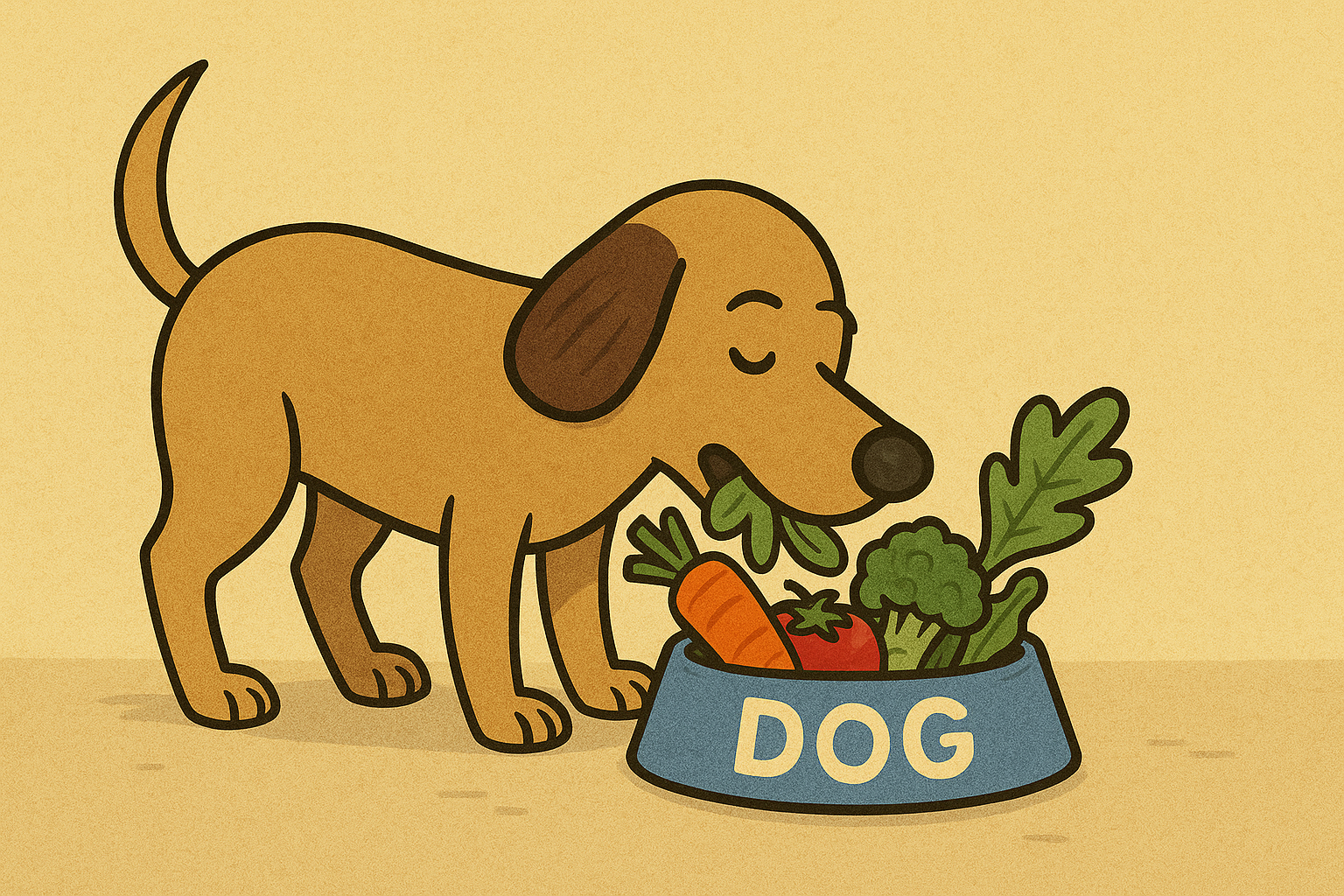Did you know your furry friend might thrive on greens just as much as they do on meat? Believe it or not, a growing number of pet owners are exploring vegan diets for their dogs, and the results could surprise you. Picture this: a diet filled with plant-based goodness that not only satisfies your pup’s hunger but also boosts their health in unexpected ways. Ready to discover whether this lifestyle change is the ultimate upgrade for your dog’s diet?
Imagine your four-legged companion with a shinier coat, more energy, and fewer health issues. If you’re unsure about this meatless leap, you’re not alone. But stay with me as I share what experts have to say about this intriguing dietary shift. There’s a lot more to canine nutrition than traditional kibble and bones!
Before you toss out the beef and chicken, gather some expert insights and see if this lifestyle shift could turn your dog into a veggie lover! This exploration into your pet’s health is packed with revelations that could change their life—and yours. Let’s dive deep into the details and unleash the potential benefits of a vegan diet for your dog.
You may be asking, ‘Is it safe for all dogs?’ or ‘Will my pet get enough nutrients?’ Hang tight; we’ll address these burning questions and unravel the mystery behind vegan pooch diets. Curious about what veterinarians think? I’ve got the inside scoop. Let’s get started!
Understanding Vegan Diets for Dogs
A vegan diet for dogs eliminates all animal products and focuses on plant-derived ingredients. Think legumes, whole grains, fruits, and vegetables—items you might find on your plate. Unlike vegetarianism, which might include eggs or dairy, vegan diets strictly avoid these.
One of the driving forces behind this choice is often health-related. Some pet owners believe that cutting out animal products can alleviate allergies or digestive issues in their pups. Imagine no more itching or digestive upset—sounds like a dream, right?
Environmental and ethical considerations also play a role. With sustainability becoming a buzzword, more owners are considering the ecological footprint of their pet’s food. Vegan diets are believed to be more environmentally friendly since they rely on resources more efficiently than traditional meat-based foods.
But how do our four-legged friends process such meals? Dogs are facultative carnivores, meaning they can thrive on a variety of foods—yes, even plants! Their ancestors might have relied heavily on meat, but modern dogs have a more versatile digestive system.
Concerned about missing nutrients? A well-balanced vegan diet takes careful planning to ensure pets receive all necessary vitamins and minerals. Commercial vegan dog foods often include supplements to cover bases like taurine and vitamin B12.
Ready to give it a try? Transitioning your pup to vegan food should be gradual. Start by mixing plant-based options with their usual food, slowly increasing the vegan portion.
It’s crucial to monitor their health during this time. Keep a close eye on their coat, weight, and energy levels to ensure they’re thriving. If you’re not comfortable making the switch alone, consult a vet to guide you through the process.
The Benefits of a Plant-Based Pooch Diet
Thinking about what this diet could do for your pup? The potential perks are as juicy as a ripe apple! Many pet owners report shinier coats, less itching, and improved energy levels after switching their pups to a vegan diet.
Health benefits include lower risks of obesity. Plant-based diets tend to be rich in fiber and low in calories, which can prevent unnecessary weight gain. It’s like hitting the doggy gym without lifting a paw!
Heart health may also improve. Vegan diets often contain low levels of fat, particularly saturated fats, reducing the risk of heart disease. Plus, the presence of omega-3 fatty acids from sources like flaxseed supports cardiovascular health.
And don’t forget joint health! Ingredients rich in antioxidants, such as sweet potatoes and blueberries, can help prevent inflammation, easing joint pains in older dogs.
Your dog’s digestive health could benefit as well. A diet full of fiber keeps things moving smoothly, much like a personal trainer for their tummy!
On the ethical and environmental side, a shift towards plant-based foods reduces the demand on meat production, which is taxing on the environment. Feels good to do your part, right?
But what about picky eaters? Surprisingly, some dogs prefer the variety of flavors in a vegan diet. Who knew they had such refined palates?
Before you become a full-time vegan chef for your pooch, consider testing a small serving. Observe their response and see if the perks outweigh any potential drawbacks.
Potential Risks and Considerations
While a vegan diet sounds promising, like any major lifestyle change, it comes with its own set of challenges. Let’s weigh them out, shall we?
The first concern often raised is whether a vegan diets provide complete nutrition. Taurine and vitamin B12 are usually found in animal products, and their deficiency could lead to serious health issues. Commercially available vegan dog foods typically supplement these nutrients.
Digestive upset is another possible hurdle. Some dogs might not adjust easily to increased fiber from plant-based foods. Gradual changes can minimize tummy troubles.
Then there’s the taste factor. Transition might be difficult for those accustomed to meaty flavors. Mixing vegan food with familiar flavors can help make the change easier.
Breeding is also to consider. Some breeds might require specific nutrients found in animal products. Research your breed’s specific dietary needs and tailor accordingly.
Regular health checks and consultations with a vet can help mitigate these risks. Think of it as your dog’s personalized health care plan!
Your pet’s response to the diet is the ultimate indicator. Regularly monitor their overall health and maintain open communication with a veterinarian.
If the vegan lifestyle suits both you and your pet, great! But don’t rush; take the time to ensure their new diet is well-balanced and nutritionally sound.
Expert Opinions on Vegan Dog Diets
What do the vets have to say about this plant-powered transition? The veterinary community is healthily skeptical yet intrigued by vegan diets for dogs.
Many experts agree that dogs can thrive on such a diet, provided it’s well-balanced. Consultation with a vet is essential to ensure all nutritional needs are met. Veterinarians often suggest regular blood work to monitor any deficiencies.
Some vets see it as a viable option, especially for dogs with specific allergies or intolerances. Cutting out common allergens like chicken or beef can bring significant relief.
However, others caution against rushing into entirely plant-based diets without thorough research and professional guidance.
Nutritionists emphasize the importance of using commercial vegan dog foods over homemade ones. They’re formulated to include vital nutrients, and you can avoid the risk of accidental deficiencies.
Breed-specific advice is also popular among vets. They advocate for understanding your dog’s unique needs before making any dietary changes.
Veterinarians also note that like humans, each dog is unique and will react differently. What works for one may not suit another, so it’s crucial to pay attention to your dog’s reactions.
Ultimately, a well-informed decision, backed by professional guidance, ensures your dog’s dietary needs are met while pursuing a vegan lifestyle.
The verdict? Keep an open mind and a close eye on how your pup responds to their new diet!

